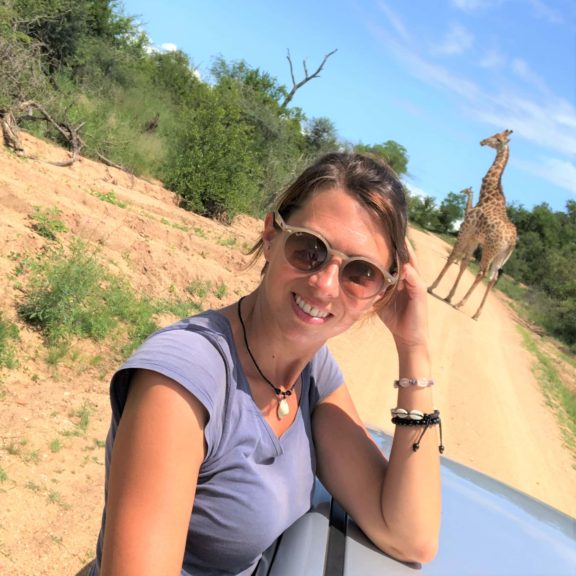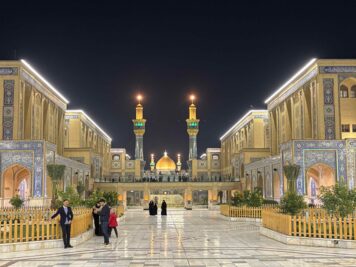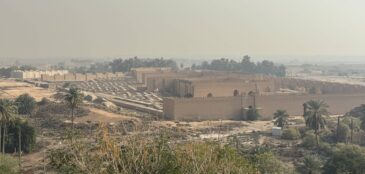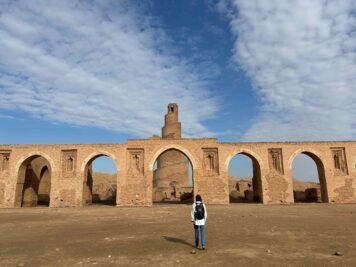Oyv and I recently travelled together in West Africa from Liberia to Cote d’Ivoire. Duty calls (it calls Oyv…me not so much) and he headed home on a flight from Abidjan late one night. I saw him off in a taxi from our hotel in Grand Bassam and then I went back and sat by the pool in the dark, feeling a bit lonely.
But as I walked along the beach the next morning I started feeling more like myself. I ate pizza at our favourite restaurant; I shopped for wooden souvenirs I had no hope of carrying. There was a big change of scenery ahead of me: Bangladesh, far away in Asia. And only 30+ hours of flying to get there, via Morocco, Abu Dhabi, and India.
And so it was that just a few days after our latest African adventure I landed in Dhaka, Bangladesh’s enormous capital city. Unsurprisingly my backpack didn’t make it through that many connections. In the disorderly disaster that is Dhaka’s International Airport I had to literally search for the bag myself in Lost Luggage and Long Term Storage, before an airline employee eventually escorted me to an upstairs office.
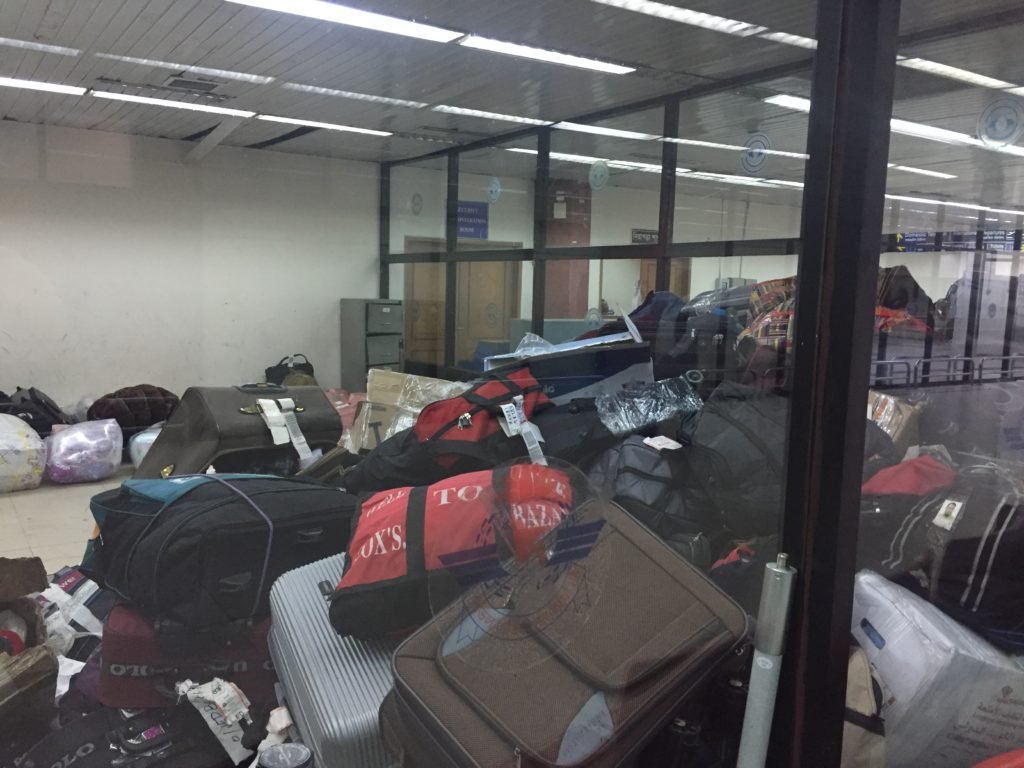
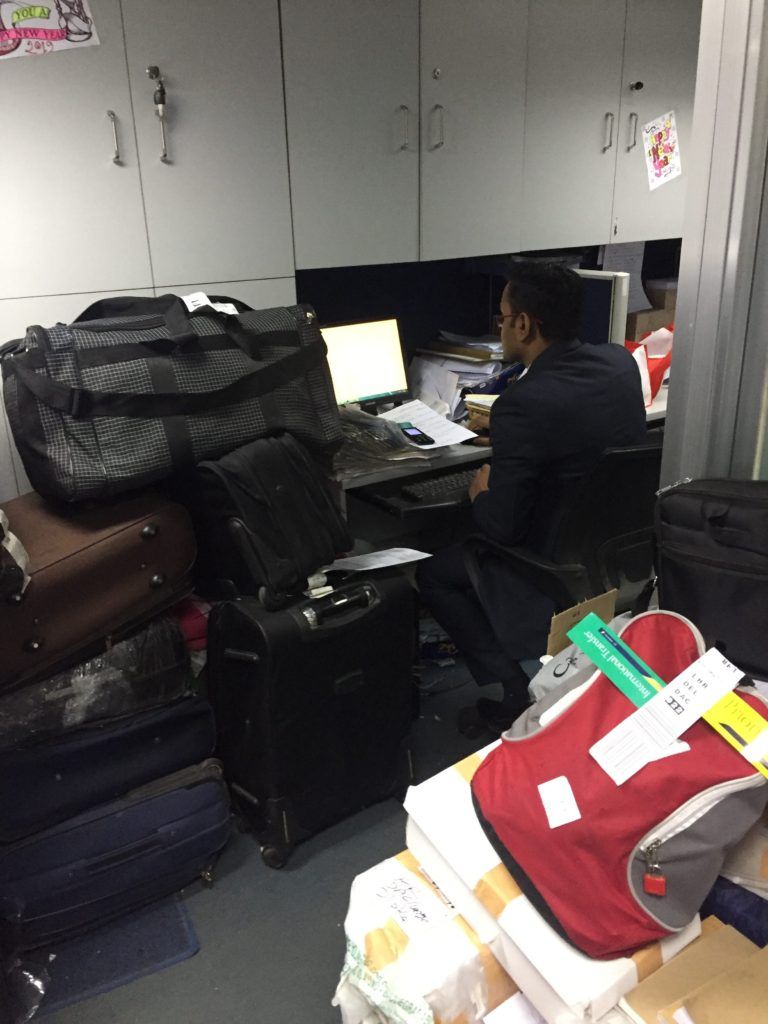
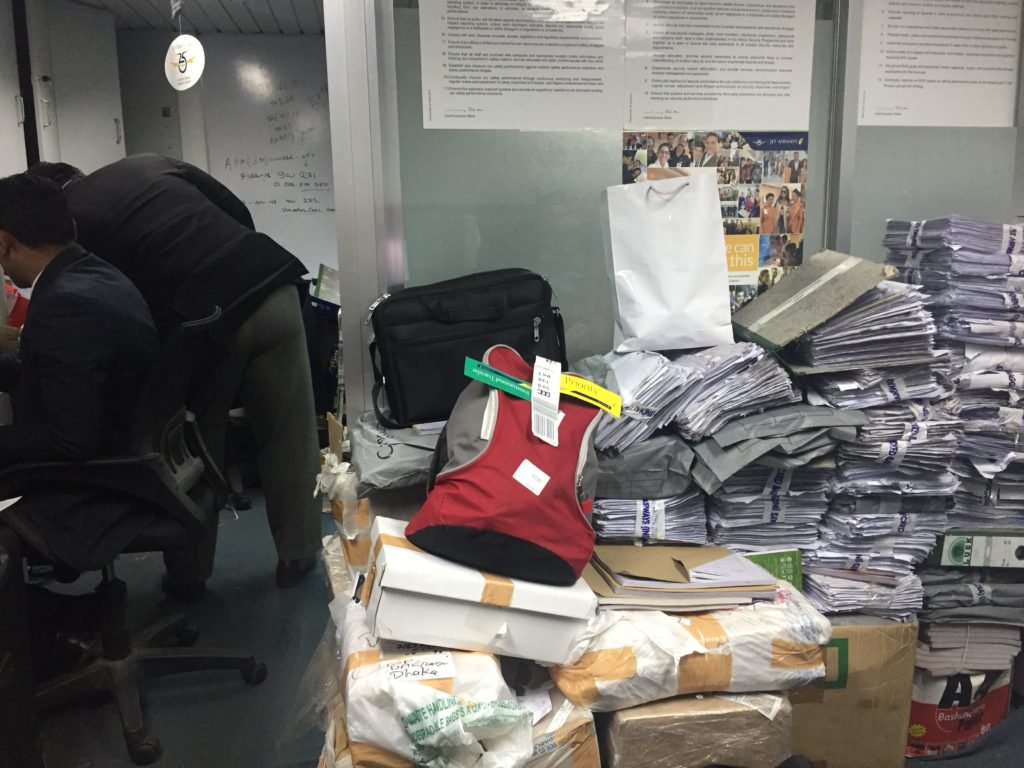
He slowly filed a report while the cleaning staff gathered in the hallway to peer in and stare at me. Staring – that’s something a traveller in Bangladesh has to get used to, and fast.
Fending off requests for tips from a baggage handler (who hadn’t in fact handled my baggage at all since it was nowhere to be found), I exited the airport into a snarled mess of bumper-to-bumper traffic and noisy people. Every hour is rush hour in Dhaka: it took over two hours to get to the hotel. Exhausted by the long flights from one continent to another, I tumbled into bed and went to sleep.
It was very early the next morning when the first of the street noises filtered into my room and woke me up. Honking, shouting, buzzing tuk-tuk engines and the constant ringing of bicycle bells on the cycle rickshaws – any chance of sleeping in went out the window.
I knew that thanks to my missing backpack I’d be in Dhaka for a few days but I also knew there was plenty to see while I was stranded.
Out in the street I flagged a cycle-rickshaw and confidently climbed on. Riding in any sort of vehicle in Dhaka is an accomplishment. Riding a cycle-rickshaw can feel death-defying.
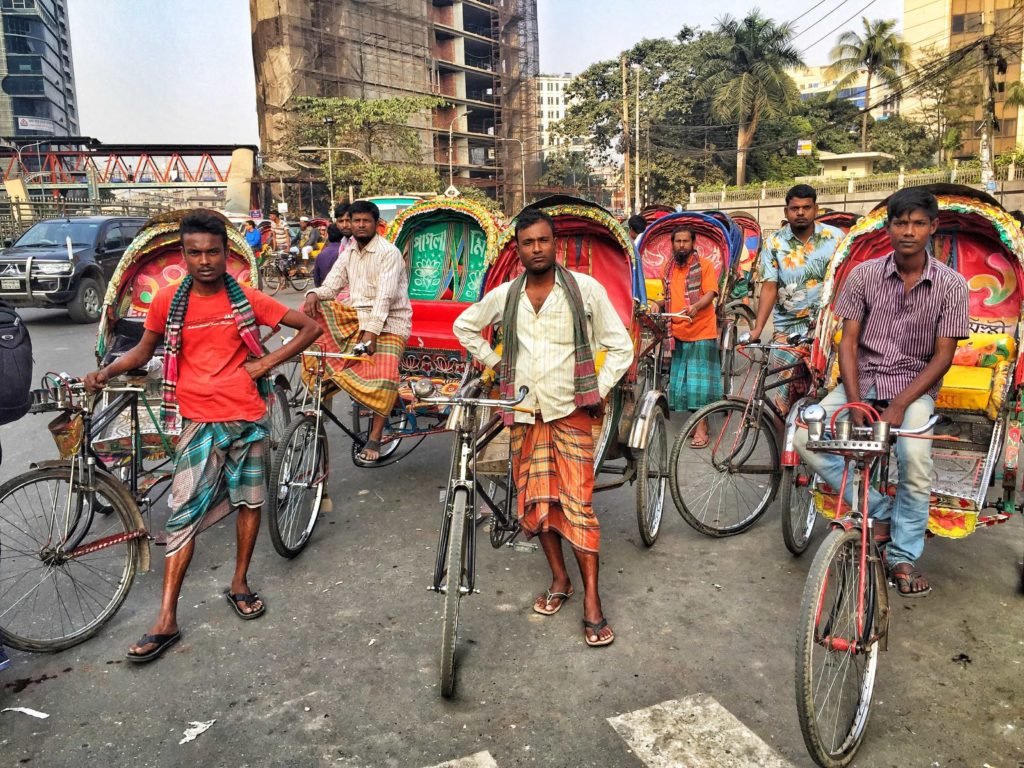
Perched on the tiny bench behind the driver I clung to the sides. My seat on three wheels swung through a roundabout and careened into traffic, and just like that I was immersed in clouds of exhaust the sights and sounds of this new city.
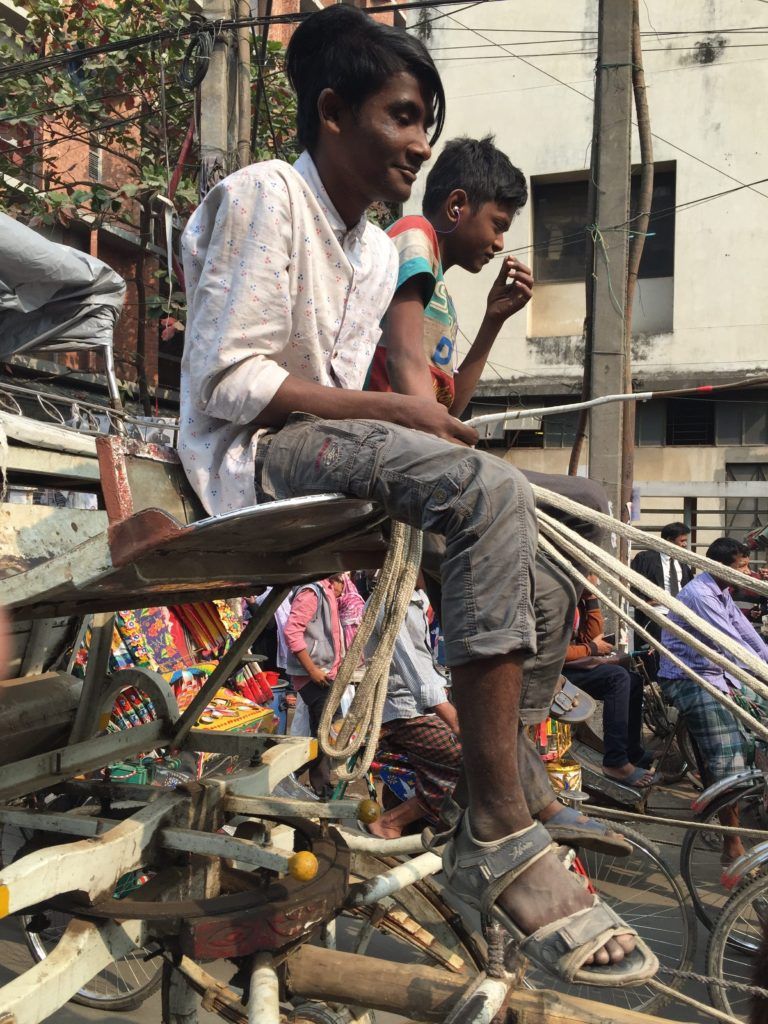
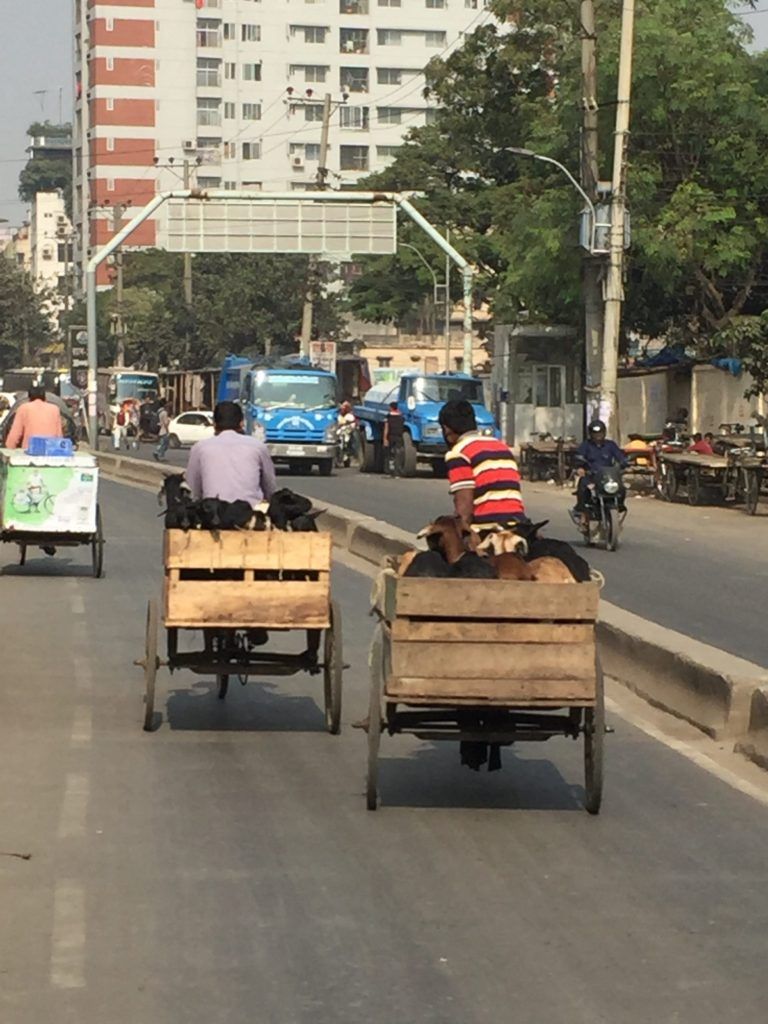
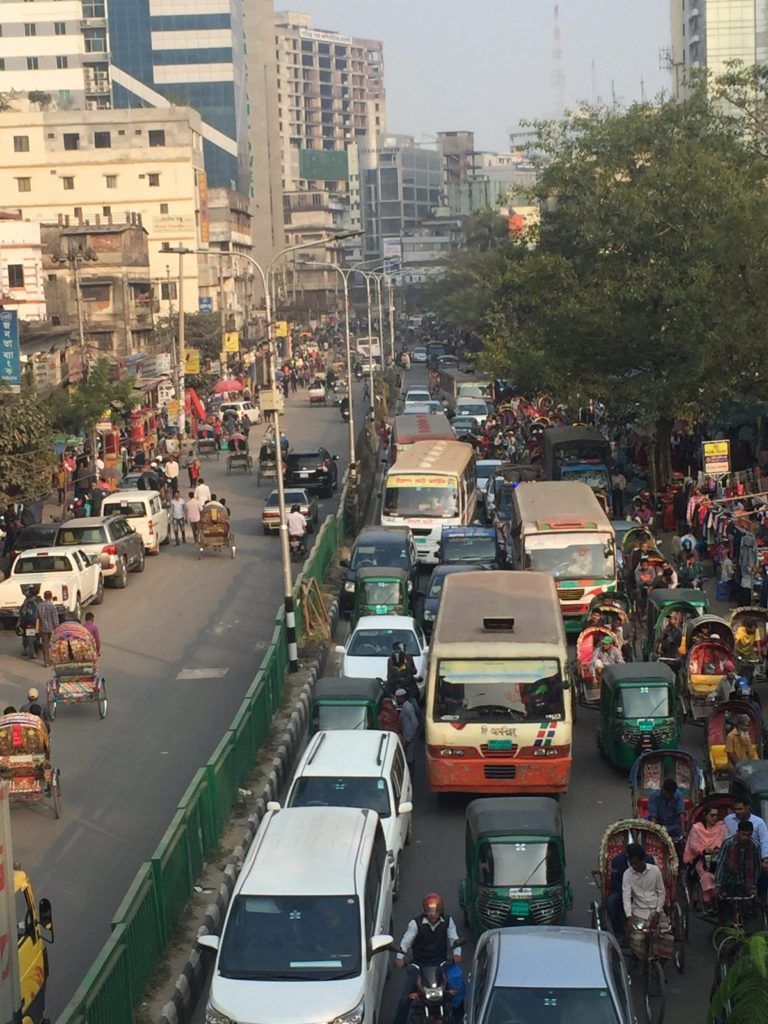
Surviving the ride I climbed down at Lalbagh Fort. Prince Mohammed Azam commissioned the fort in 1677 but didn’t finish it. The prince handed the project over to Shaista Khan, but he didn’t finish it either due to the death of his daughter Pari Bibi, who’s entombed inside the grounds.
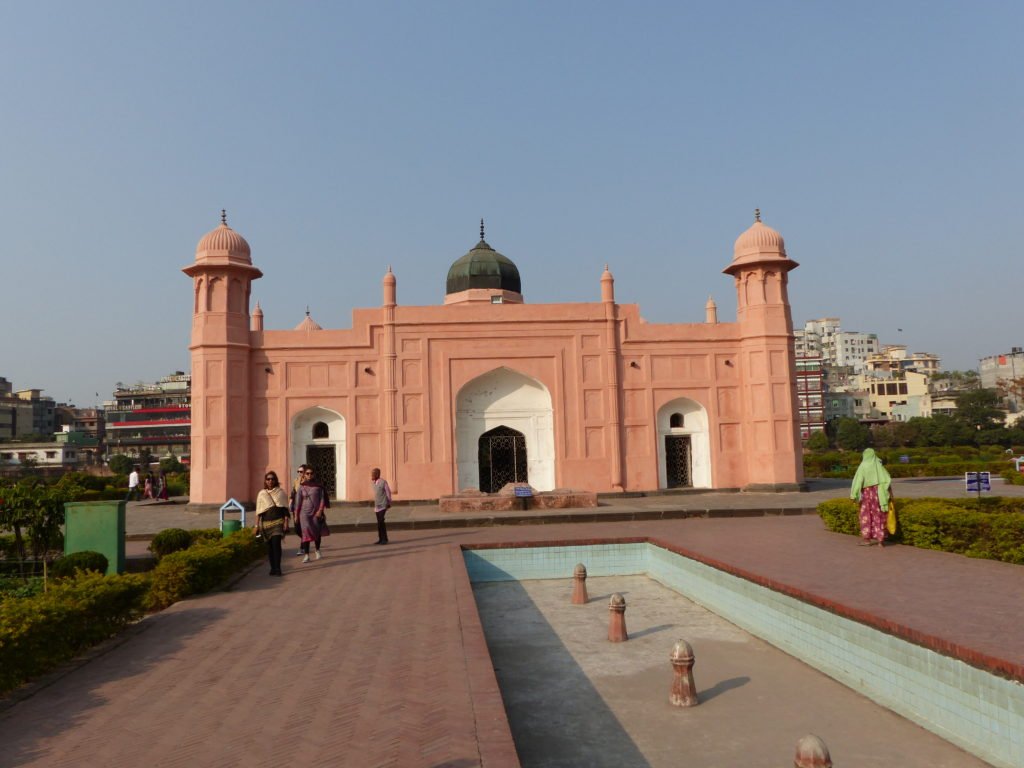
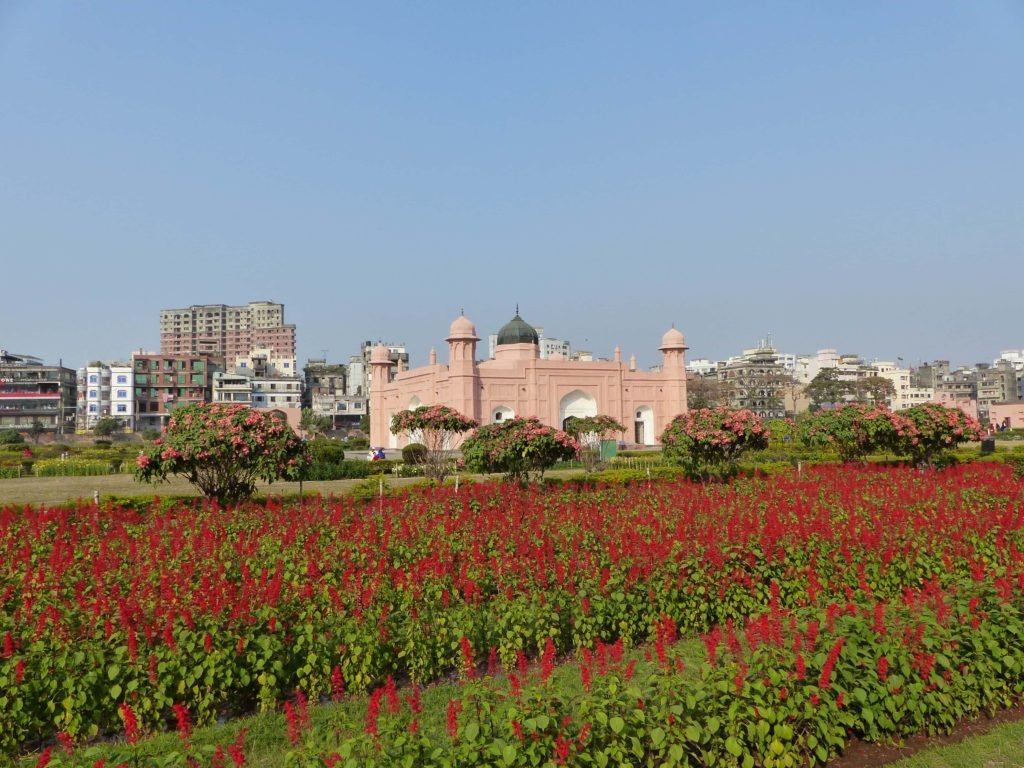
But most importantly to me (yes, already), and apparently to the locals strolling in the gardens – it’s a quiet retreat from the rest of the city’s 20 million inhabitants.
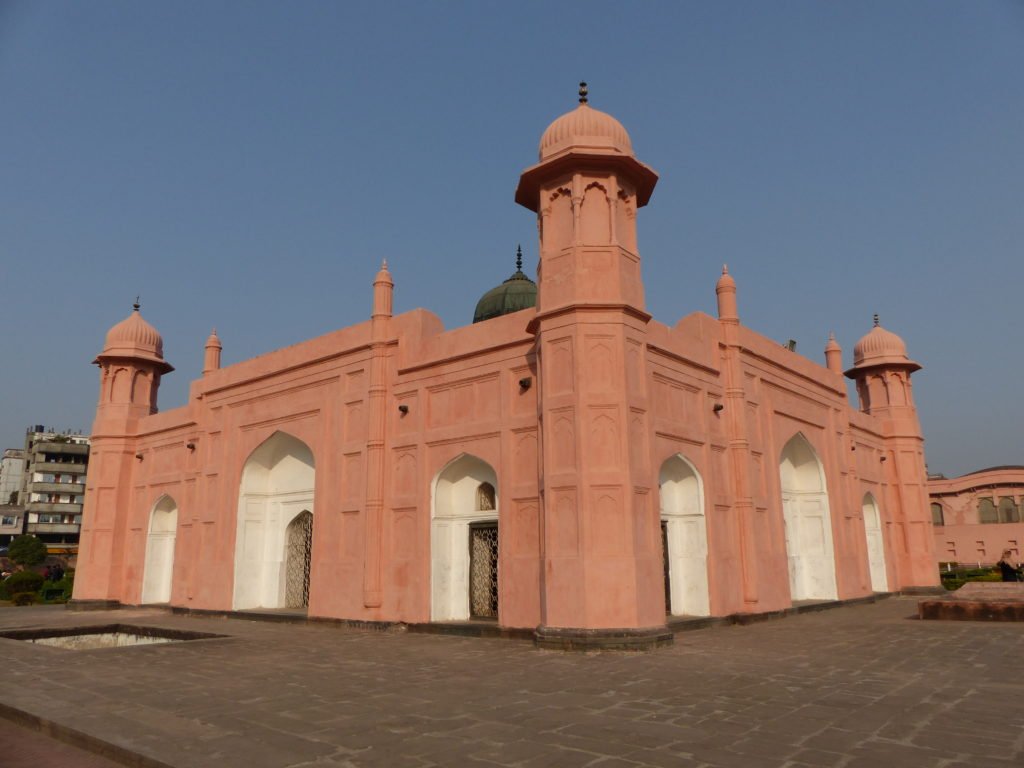
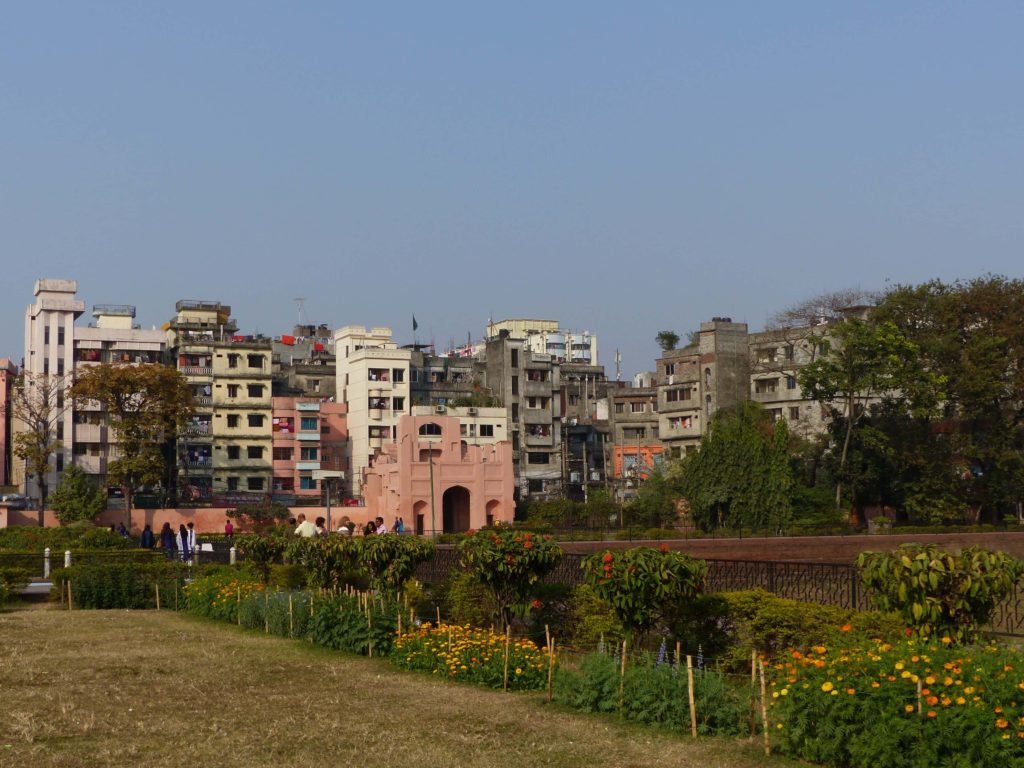
‘My relatives are taunting me constantly’ said Tabassum. She and her cousin were also visiting the fort. They’d beckoned to me to join them sitting in the shade of Pari Bibi’s mausoleum and we’d got to talking. The reason for this familial persecution it turns out, is that Tabassum is 21 years old and not married, unlike her 19 year old cousin Meena. I didn’t really see how this was even Tabassum’s fault. Many marriages here are still arranged so it seemed to me that her relatives had dropped the ball. She and Meena were spending one last afternoon together before Meena had to leave the family home and move to her new in-laws’ place. ‘Do you like them?’ I asked. ‘Yeeees’ said Meena looking around shiftily and shaking her head no, while Tabassum laughed. They are just kids really – Tabassum’s a student – and yet they seemed older than their years. I suppose because one is married and the other a spinster. They offered me sage advice on which foods I should eat. When I told them I’d eaten lunch at a street stall they were aghast. ‘That food will destroy your health’ said Tabassum. ‘You must eat more vegetables’ Meena lectured sternly. I’d been here less than a day and was pretty proud of myself for surviving the trip so far, mainly the cycle rickshaw. Dietary concerns weren’t really on my mind.
From the moment I’d arrived at the hotel one of the staff had been attempting to persuade me to hire his friend Mr. Ali the Rickshaw Driver. Each time I sat down in the hotel’s dubious restaurant to eat a meal that Tabassum definitely would not approve of, the waiter appeared at my side. Holding out his phone already dialled and ringing, he would suggest that I make plans with Mr. Ali who he claimed speaks fantastic English and only drives foreigners. That right there poked holes in the waiter’s story – Mr. Ali must have a great deal of time on his hands. I am the only foreigner I’ve seen since the airport. But when he wasn’t on the other end of the phone Mr. Ali was in the street outside watching me through the window. Sometimes both. I’d also met him in person, ‘accidentally’ one afternoon. ‘You’re staying at the Pacific Hotel’ he said to me by way of introduction when I sat sipping chai at a little teastall. ‘You had a very long breakfast, I saw you’ he added conversationally.
But patching together one rickshaw ride after another is a daunting task. So I cracked, and hired Mr. Ali to show me around Old Dhaka, the original Mughal part of the city.
Mr. Ali indicated that I should hold tight both to the rickshaw itself and to my bag. I knew he was right on both counts. Rickshaws can tip easily, and a careless passenger sitting on one with a bag in their lap is the perfect target for motorcycle drive-by thieving. Ringing his shrill bicycle bell, Mr. Ali cut off a rusting double-decker bus. Flashing his arresting yellow and brown smile at me over his shoulder he pedaled straight on into traffic.
After nearly an hour of cycling we reached the old city. From my seat on the rickshaw I looked around at the hopping bazaars, mosques, temples and the crowds of inquisitive locals.
First we stopped at a Buddhist temple.
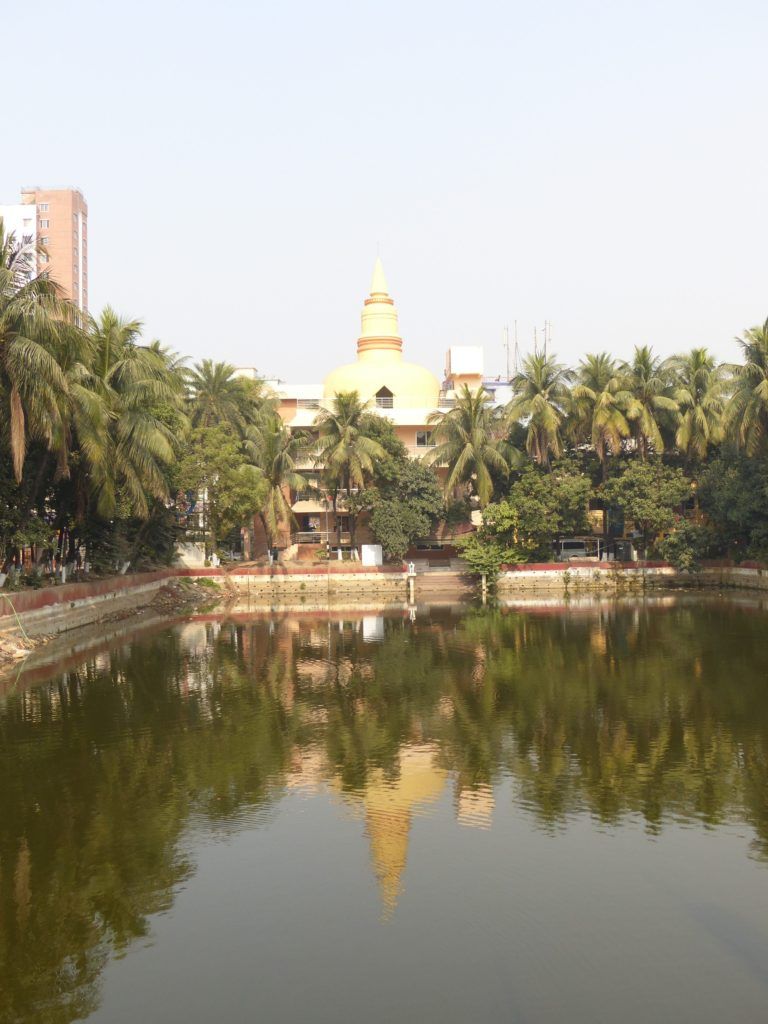
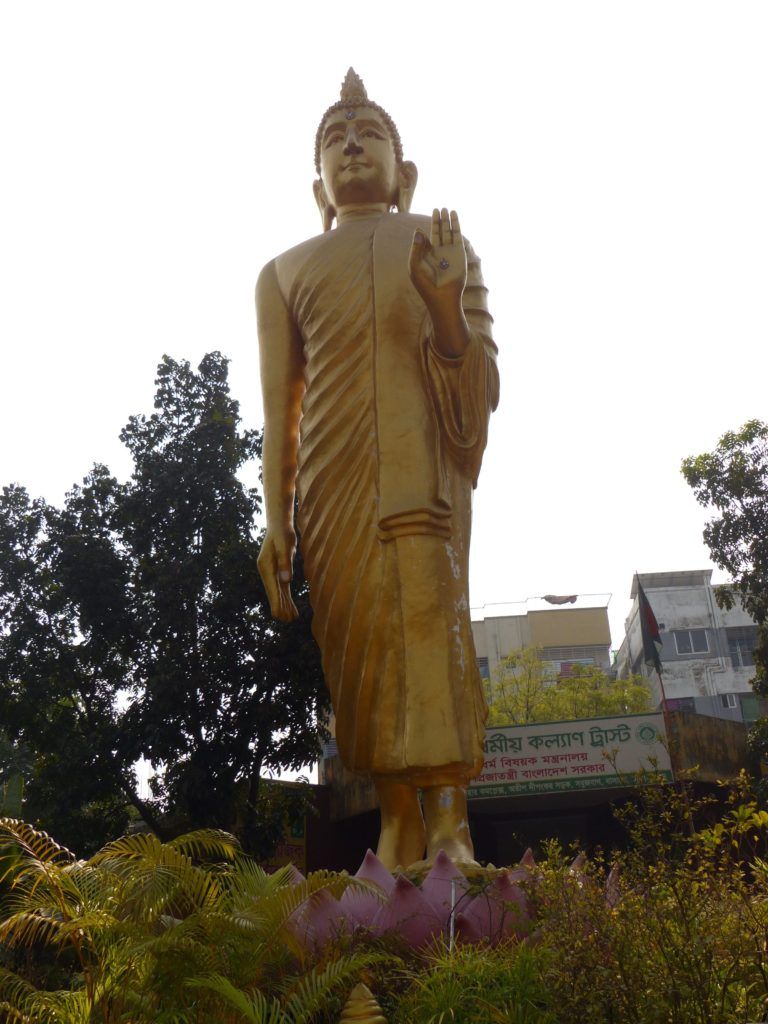
I asked Mr. Ali when it was built. ‘Yes’, answered my fluent English-speaking guide firmly, nodding enthusiastically.
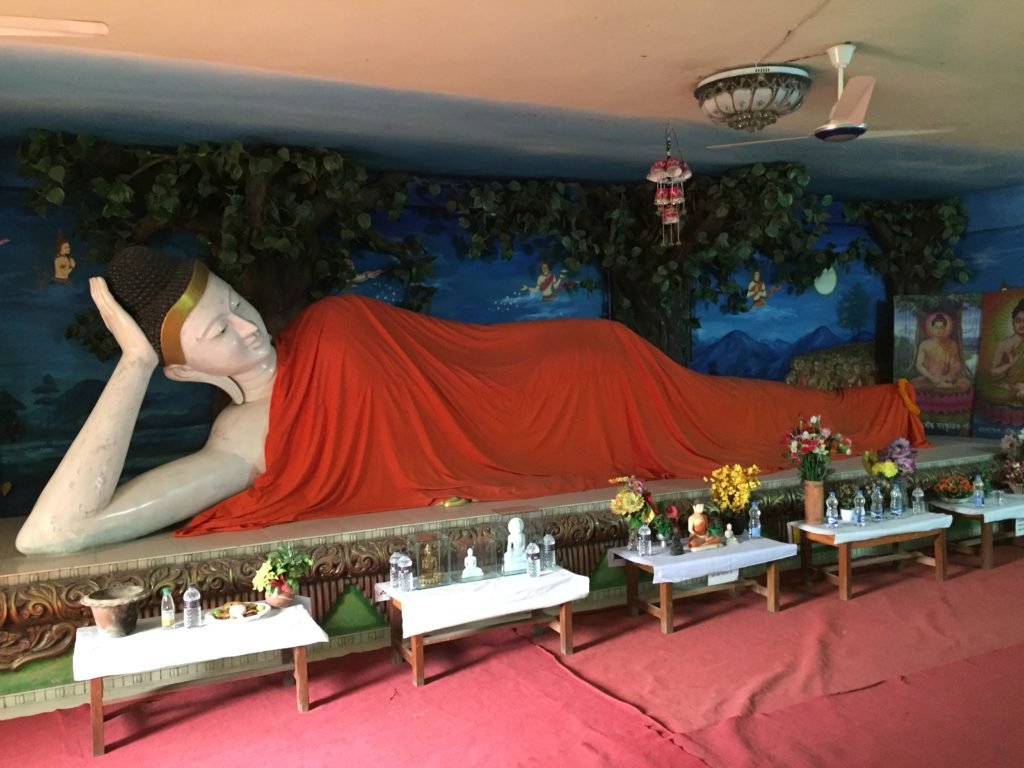
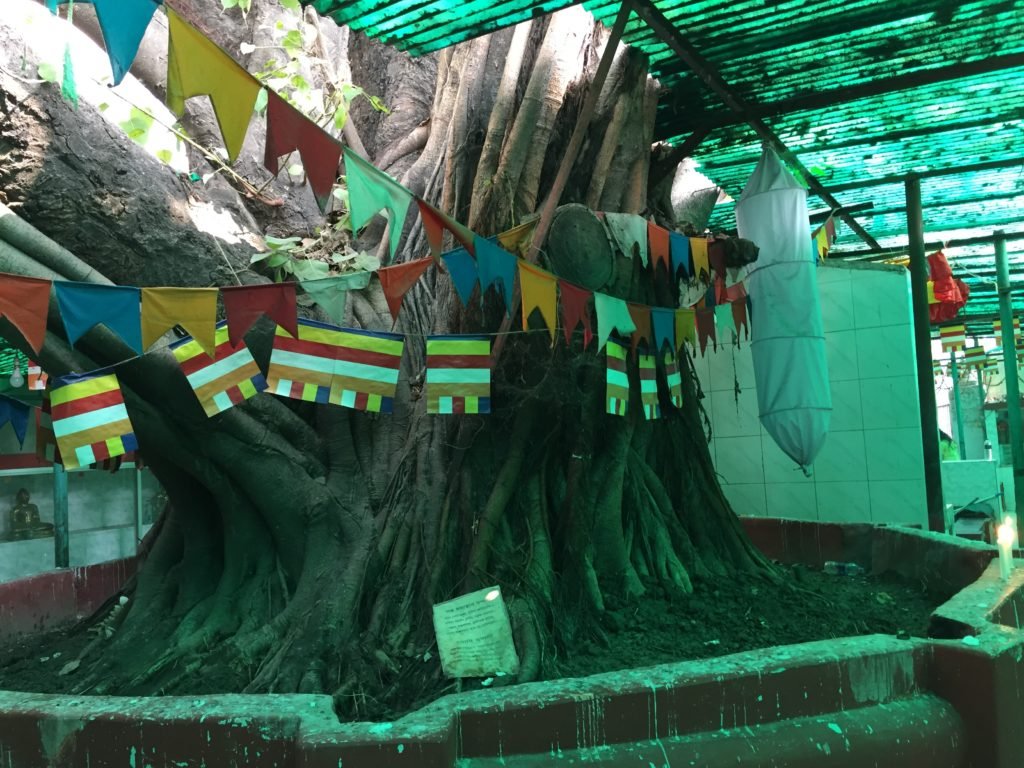
For contrast we visited a couple of mosques and then an Armenian church. The caretaker there took a break from handing out little foil packets of lentil curry to a long line of the city’s poor. He showed me around. ‘Christian, Buddhist or Muslim, we are all the same’ he said, and gave me some curry too.
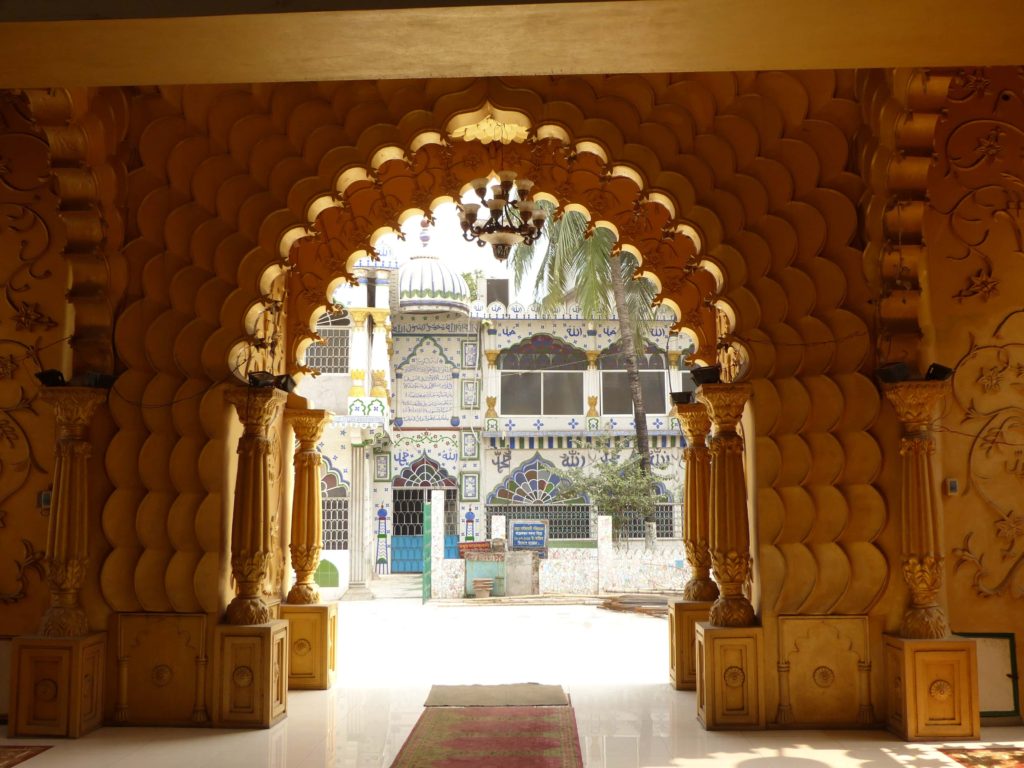
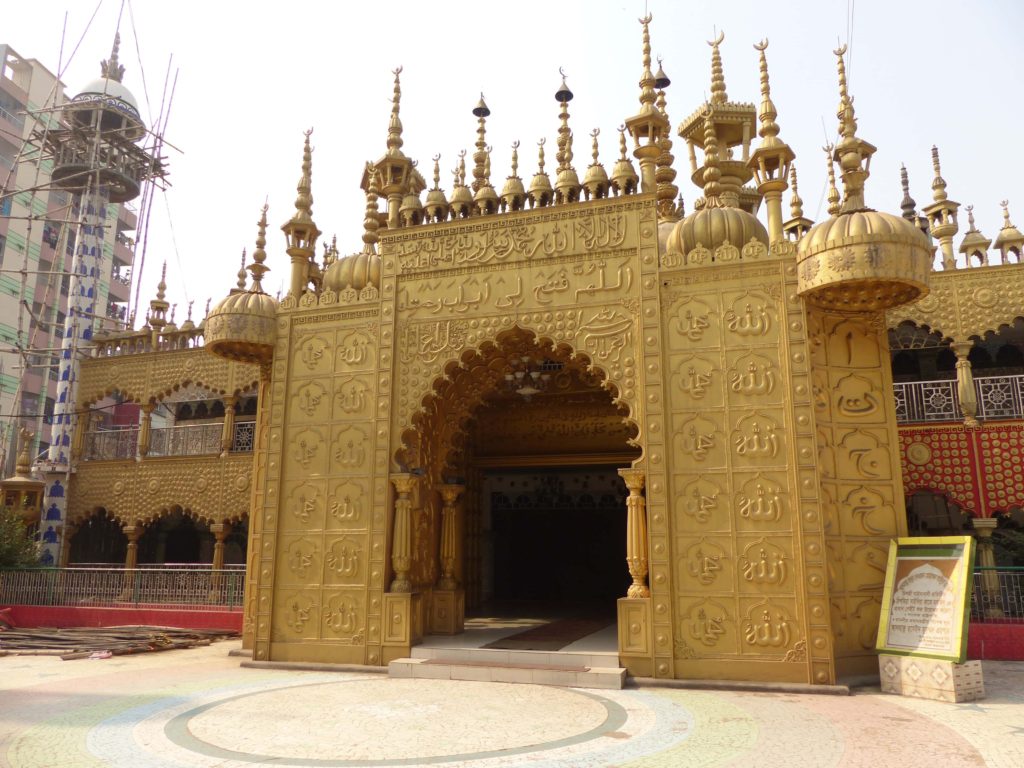
Then we carried on to Sadarghat, Dhaka’s riverside port where life flows with the water’s current.
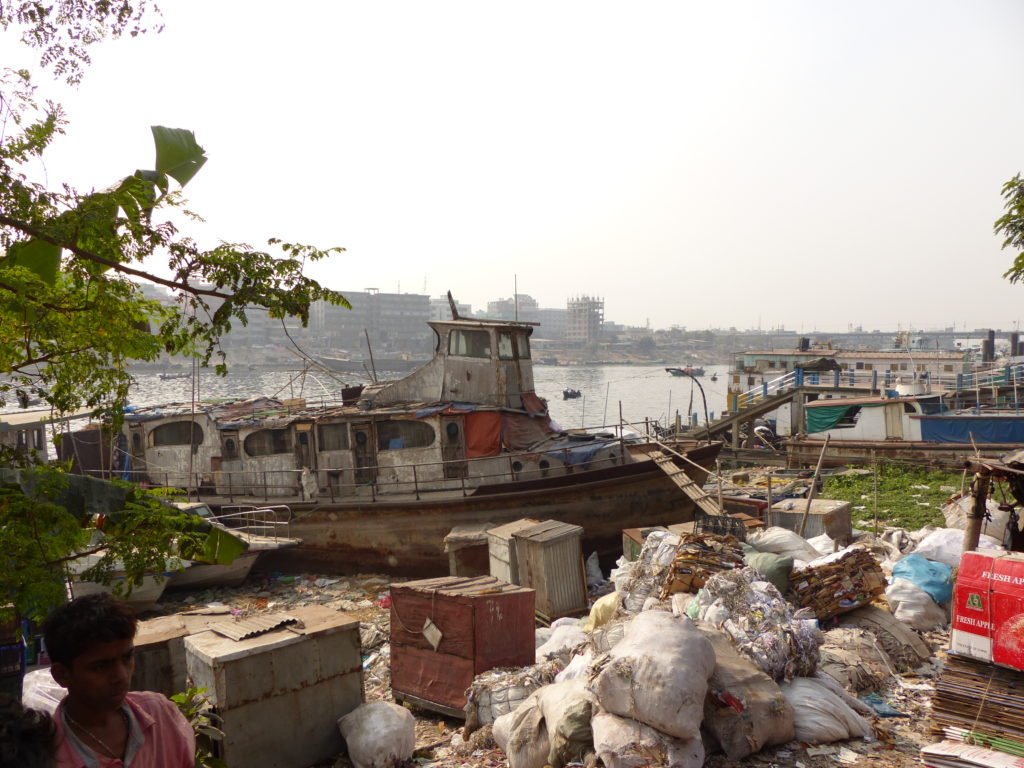
The river is clogged with vessels; the vessels are packed with people and cargo; the road beside the riverbank froths with market stalls and crowds.
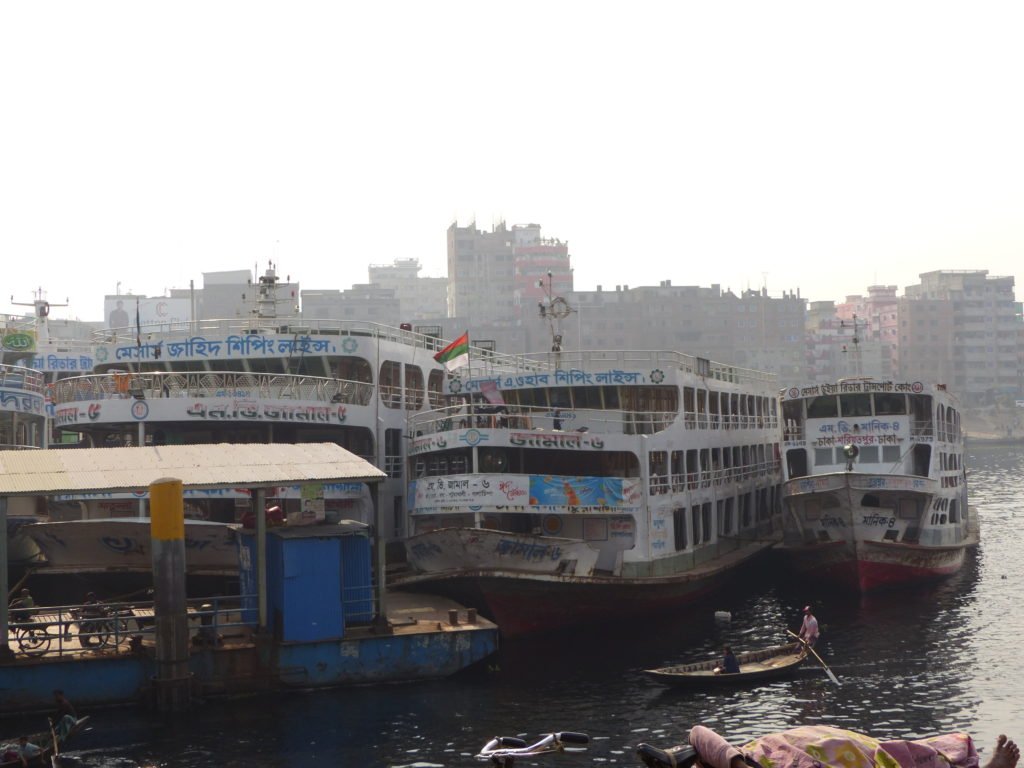
‘Hang on’ said Mr. Ali gruffly, pointing to the zipper on my bag and hauling me away from a group of young boys playing with a dog.
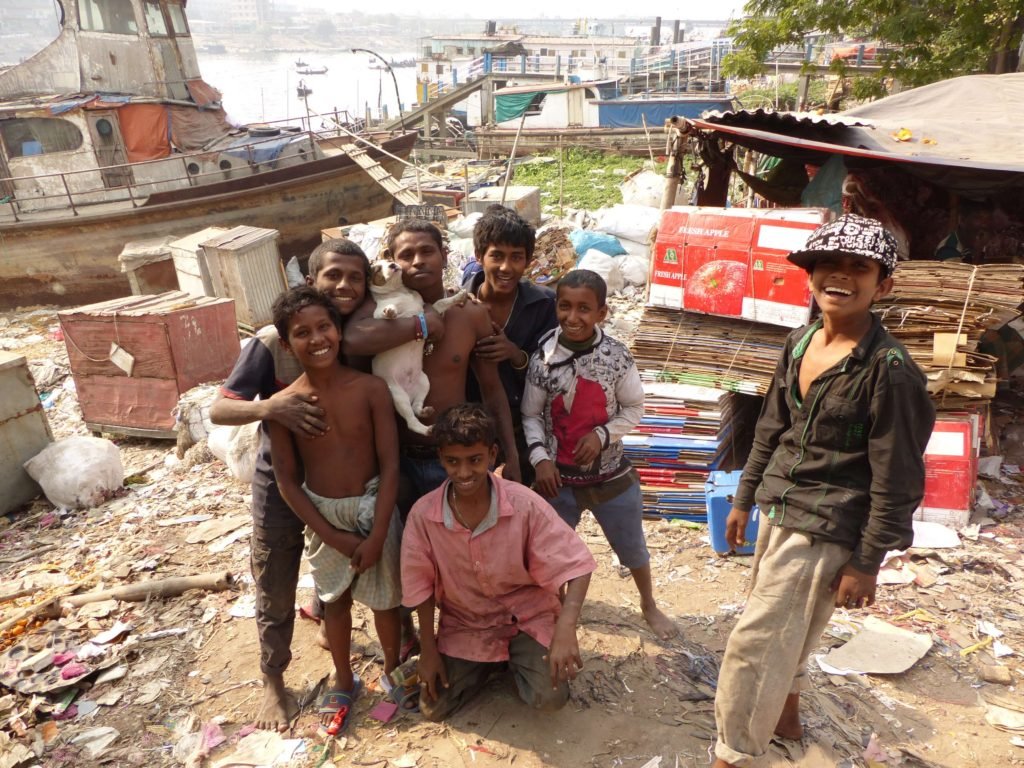
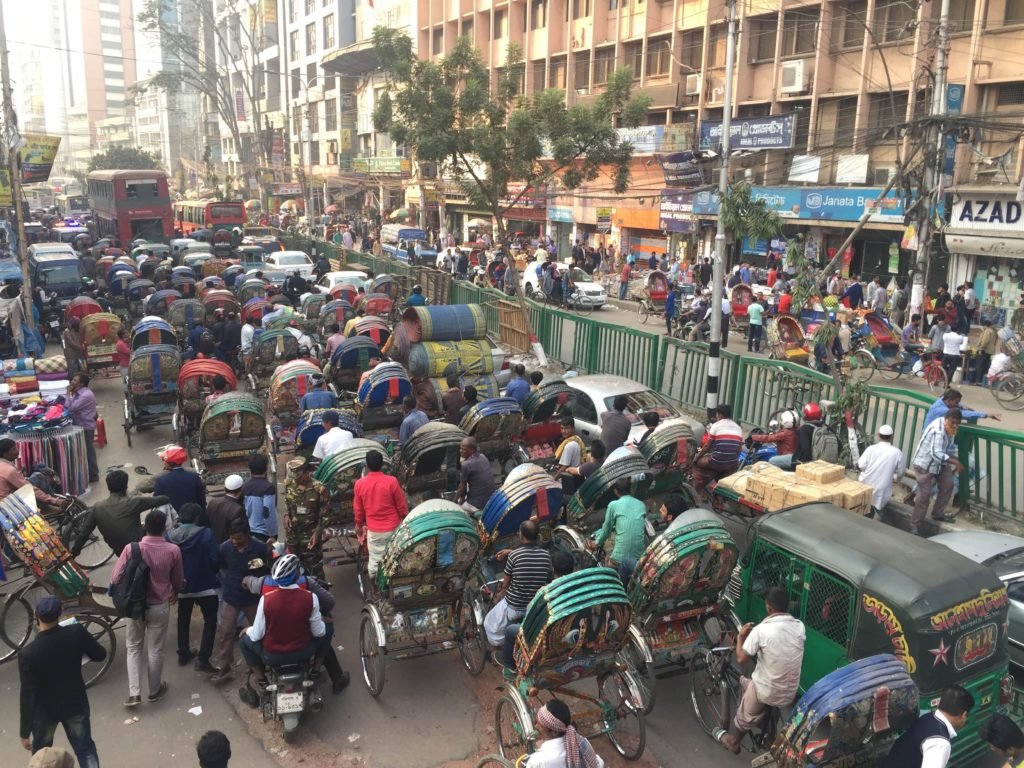
Although he seemed convinced I’d be pickpocketed before the day was out, Mr. Ali took me to Shankharia bazaar. Known as Hindu Street, this Indian quarter of the city is filled with shops selling all the sorts of things I recognise from India – incense, chakra beads, vibrant colored powders, Hindu religious icons, sari silk and anything else carrying the exotic and undeniable stamp of the neighboring country.
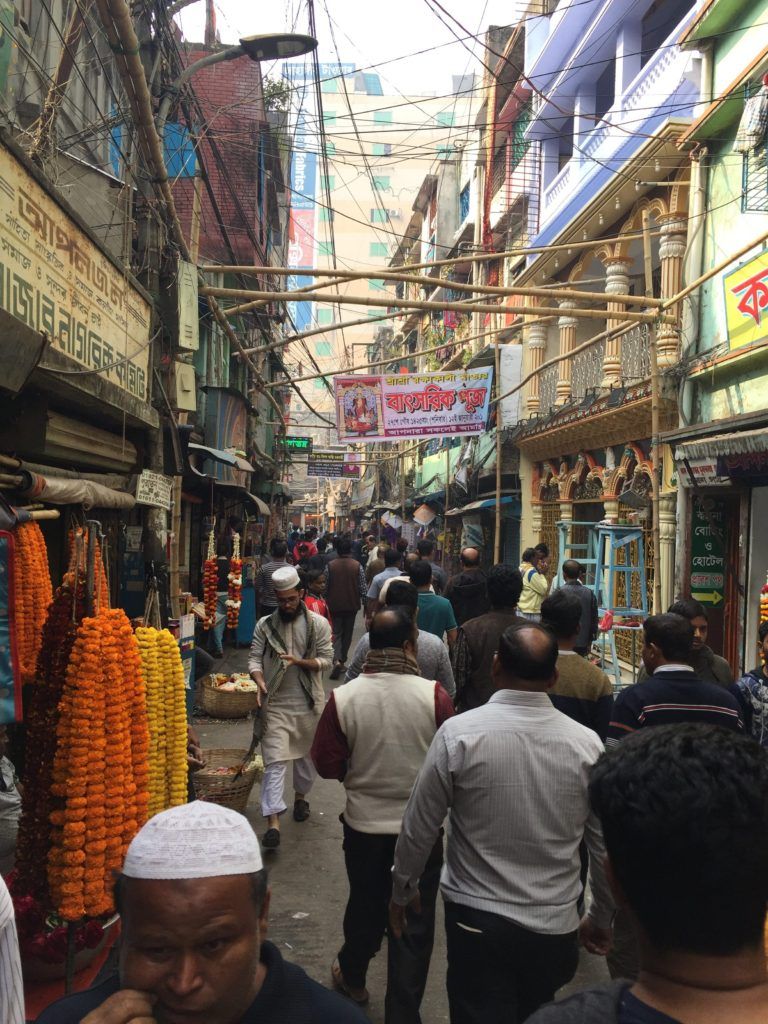
Another thing a traveller in Bangladesh has to get used to: the constant refrain of ‘Which country, which country?’. I’d told Mr. Ali where I was from (it’s likely he already knew) and he took on the role of personal ambassador, answering the question for me. As I meandered through the crush of people in the narrow lanes I noticed my guide in yet another conversation with a market vendor. ‘He asked if you are from Japan’ said Mr. Ali as we melted into the next crowd. He must have noticed my confusion. ‘You do look Japanese’ he added matter-of-factly.
Pedaling back to the hotel Mr. Ali expertly threaded his way through swarms of motorbikes and rickshaws, all frantically honking or ringing bells.

We squeezed between two buses going in opposite directions. The driver leaned out the window of one of them and handed me a flower from the garland strung across his windscreen. ‘He loves you!’ Mr Ali screamed into the wind, accelerating and overtaking the monstrous double-decker. It was a shocker but I’d started thinking that Dhaka’s traffic can make even a West African market town seem sedate.
Mr. Ali had asked me about my absent husband a few times and I got the feeling he was trying to trap me in a lie about said husband’s actual existence. ‘I love traveling with women’ he announced suddenly and as we drew up in front of the hotel he set about planning a second day for us together. In Mr. Ali’s eyes I was a goldmine of financial opportunity – after all, here I was in Bangladesh by myself, without any luggage or husband. How could I possibly travel alone? But I had plenty of plans, so thanking Mr. Ali for an eventful day I hopped off the rickshaw and headed inside.
Read More
For more of my adventures (and misadventures) in Bangladesh, check out the rest of my stories from the road.
